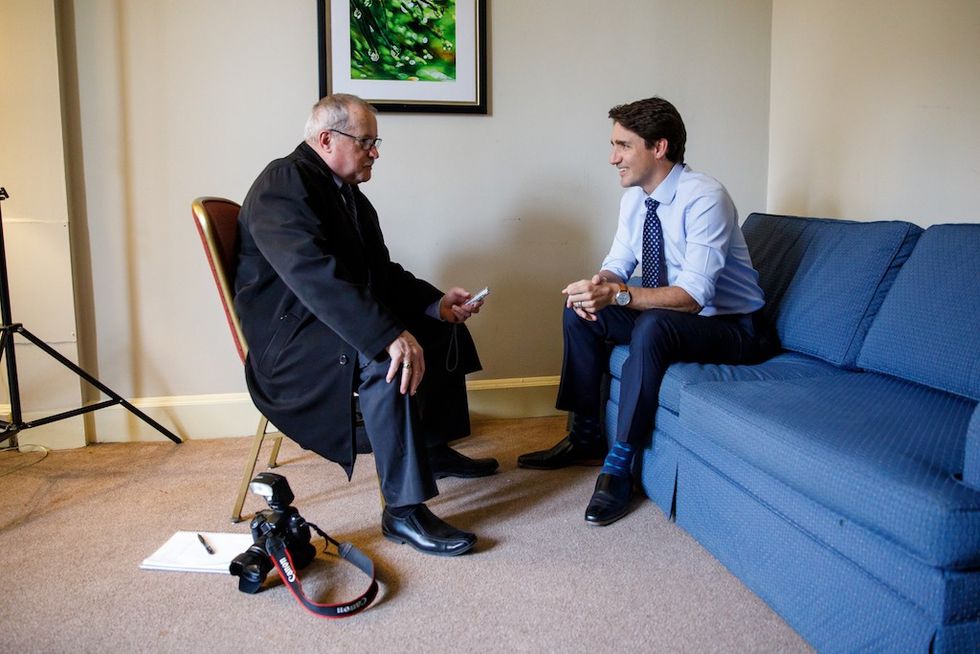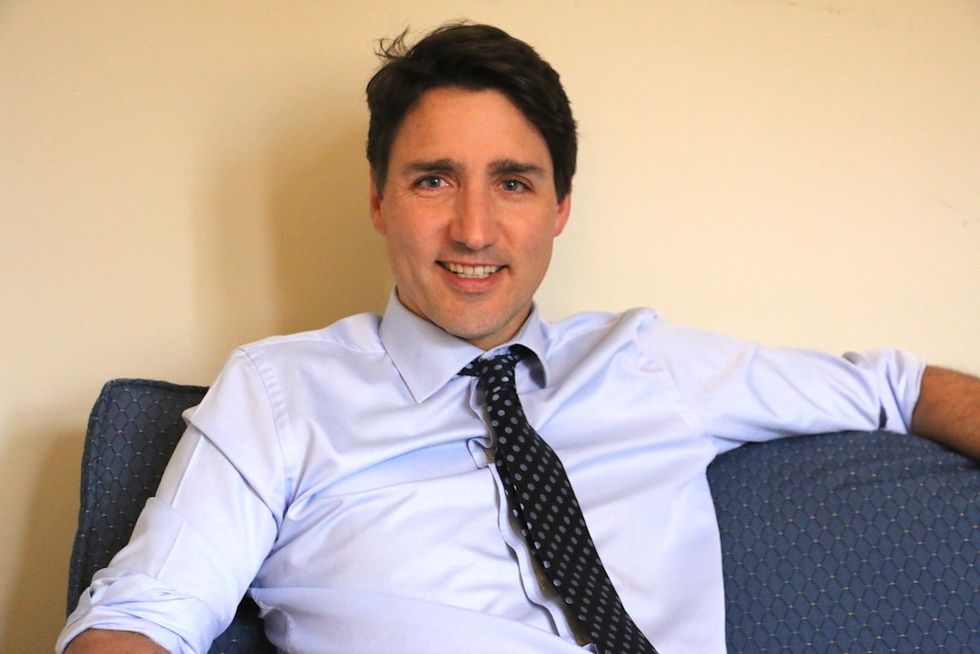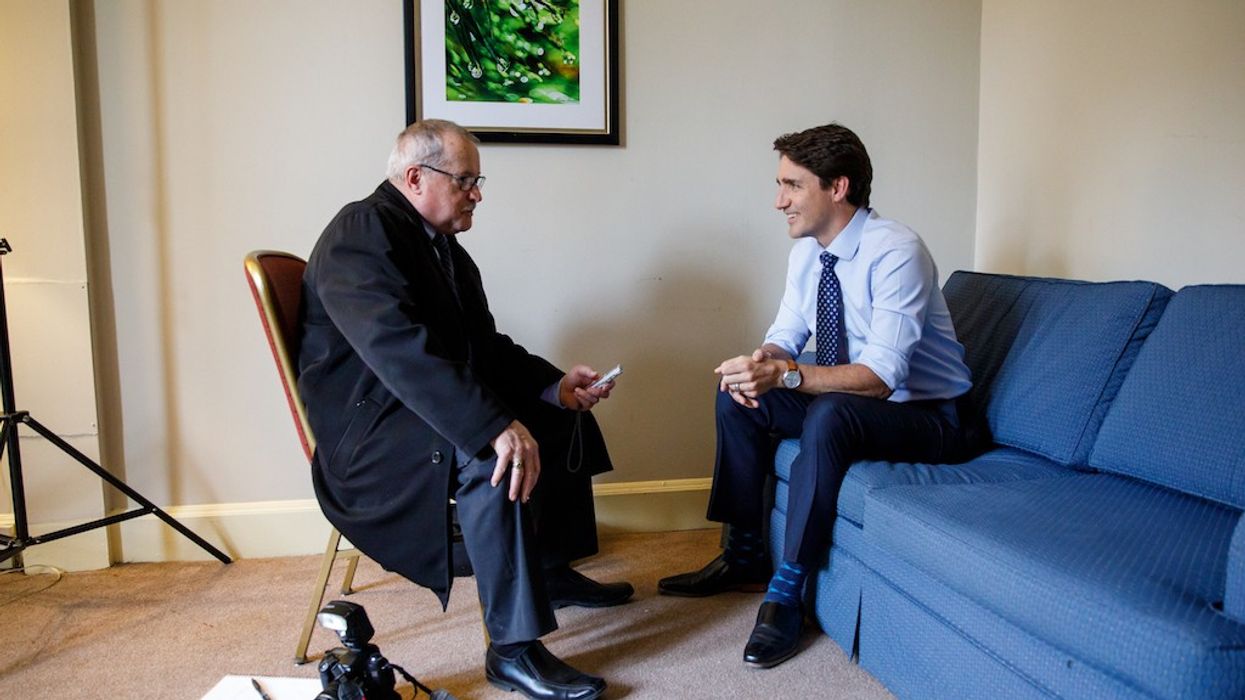
Prime Minister Justin Trudeau has his suit jacket off, his tie loosened and is looking rather relaxed after fielding questions from reporters about everything from personal security to NAFTA negotiations.
But during the Toronto availability, he wasn’t asked to touch upon one of the most pressing matters in the country — especially in urban Canada — and that’s affordable housing, not to mention the fading hope of young people ever affording a home.
While the Liberal government has identified affordable housing as a “substantial” issue and directed some $40 billion towards a National Housing Strategy, the question remains whether that money is flowing quickly enough with much of the funding back-loaded until after the next federal election.
“The $40 billion is going to roll out when it is needed,” Trudeau says in a matter of fact manner, in an exclusive interview with Storeys.
The 10-year plan also relies on debt-ridden provinces to contribute billions.
The Prime Minister concedes that housing money may be “needed now … but we also need a long-term strategy and that’s what this is all about.”
And that, he says, means identifying areas where the need is the most urgent.
To that end, Trudeau says the 2018 budget set aside $1.25 billion in low-cost loans. This money will go to developers over the next three years for low- and middle-income rental housing. The Prime Minister says this could result in 100,000 new units in urban centres across the country.
“We recognize we need to create a long-term solution and that involves building stock and incenting developers to be doing what we need to be doing — and that’s creating more low-income and middle-income rental stocks. A lot of the things require actions to be taken before people can move into new houses,” says Trudeau.
“Part of the pressure that a lot of people are facing comes from the scarcity of affordable housing.”
Trudeau explains the loans have already generated a great deal of interest among developers and “we fully expect that to be more concentrated in some of the urban areas like Toronto — and that’s on top of the $40 billion National Housing Strategy we announced in November.”

Asked what he thinks when he hears young people say their dream of affording a home may never be realized, he turned to government initiatives and “growing the economy” as the path to making it easier for those young people to buy their first home.
“These are all things that are designed to give people ... more confidence in their capacity to succeed,” says the Prime Minister.
Tim Hudak, CEO of the Ontario Real Estate Association (OREA), says the recent federal budget housing money offered nothing for the middle-class.
“The biggest concerns with the $40-billion housing plan is that there is nothing there for the middle-class or those who aspire to join it,” Hudak says in an interview with Storeys.
“We can debate all day long what defines middle-class, but most Canadians would agree it is finally when you can own a home.
“And for a government that campaigned on helping the aspiring middle-class, it was rather surprising and disappointing that not a penny was devoted to that part of our country … middle-class home ownership has been left out all together.”
Hudak says if Ottawa really wants to help it should stop making decisions that are counter-productive.
“Government policies such as higher interest rates and the new mortgage stress-test are making it increasingly difficult for new Canadians, single moms or Millennials to get their foot in the door when it comes to home-ownership,” he explains.
Hudak, the former leader of the Ontario Progressive Conservative Party, says Ottawa should consider programs like the one cancelled earlier this month by British Columbia. The program provided interest-free loans up to $37,500 or five per cent of a home purchase price up to $750,000 for first-time home buyers.
In its pre-budget proposal to the House of Commons Standing Committee on Finance, the Canadian Real Estate Association proposed “intergenerational RRSP (Registered Retirement Savings Plan) loans.” These loans would allow parents to dive into their RRSP to help their children buy their first home.
First-time home buyers in Canada can now borrow $25,000 from their RRSPs — for a combined total of $50,000 — on the condition it is paid back within 15 years. But that’s where it ends.

Trudeau notes that improved transit is a factor in the Ottawa plan to improve the chances of home ownership — “there are a lot of folks who are having to move farther and farther away from work.”
“Obviously there are greater opportunities as we expand public transit investments out to the suburbs, so people can get to and from work in city cores more affordably,” the Prime Minister says.
He adds there are also unspecified initiatives in the hopper to encourage people to move downtown.
Among housing challenges, he says, is to make it affordable for people who work in the downtown core — be it police, firefighters, nurses and so on — to live where they work.
“Specific programs are often best designed by the people closest to the ground," says Trudeau. “Ottawa … should be in the business of partnering with folks in municipalities, who need to be able to create these kinds of investments.”
Part of the $40-billion National Housing Strategy is devoted to social housing repairs. In Toronto’s case, this carries a $2.6-billion price tag.
“We know there are real challenges around getting money to make repairs … and we specifically said and John (Tory) was very happy to hear this — that a lot of that money is also for repairs and upgrades,” Trudeau explains.
Mayor Tory told Storeys, “I would say they have given us much of what we asked for … just need some of the cash flow speeded up as it is slow to start flowing.”





















